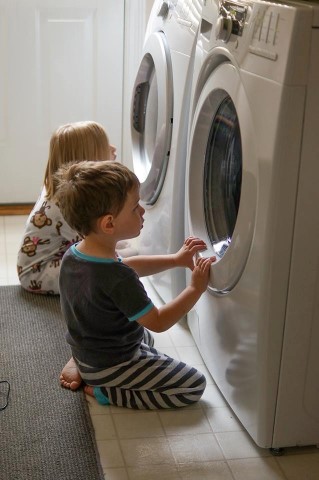Is getting an extended warranty at retailers worth it?
A good option or are you spending money on nothing?
When considering a new purchase, you're often confronted with the choice to include an extended warranty. In many cases, stores may pressure buyers to purchase an extended warranty because they make big profits when selling them. For most buyers, products will last until the end of their expected life, meaning that purchasing a warranty is usually not worth it. While there are certain circumstances where purchasing an extended warranty makes sense, it often depends on the specific product and your own personal comfort level.
Here are five questions you should ask yourself before purchasing an extended warranty that will help you come to the right decision.
1. What warranty does the product already have?

Often, products such as phones, computers and appliances already come with a manufacturer's warranty, which typically lasts one year. These warranties usually cover defects and many other problems that might arise with a product, but you should look into the specifics of each manufacturer's warranty to see exactly what it covers.
Stores also usually offer a 30-day return period, allowing consumers a certain window of time to make returns if a product breaks or has other problems.
Also keep in mind that if you make a purchase with a major credit card, this could very well extend the product warranty for another year, a cost which your credit card company covers. Contact your credit card carrier for more details and take advantage of this offer whenever you can. All of these different types of warranties almost certainly reduce the need for an extended warranty purchase in most cases.
2. Have you researched the product you're purchasing?
Try to do your homework on a product. If the product has forums filled with angry people complaining that it routinely breaks down, that's usually a bad sign. There are also many product review sites that include a wide range of information and ratings that you should research before making a big purchase.
Products and brands that have a lot of complaints should be avoided altogether, but if you must purchase an unreliable product for a specific reason, a warranty is not necessarily a bad idea. In that circumstance, try to find a time when you can use a coupon code to help shave off some of the cost of an extended warranty.
3. Are you buying a home appliance?

Home appliances, such as refrigerators and microwaves, are known to be especially reliable, making a warranty of questionable value when purchasing one. Furthermore, if there is a true defect in the product, it's likely to break down early enough that the product is still covered under the manufacturer's warranty.
4. What kind of product owner are you?
If you're especially clumsy or tend to damage the products you purchase, an extended warranty is not a bad idea. While certain problems may be covered by a standard manufacturer's warranty, if you drop your phone, or water leaks into your laptop, the damage probably won't be covered.
For products like TVs, which are usually going to stay in one place and usually don't break, buying an extended warranty is usually not worth it.
5. What's your comfort level with your purchase?
While it's best not to let emotions guide your purchasing decisions, for some people emotions aren't so easily separated from their shopping habits. If you're a worrier, especially when it comes to expensive purchases such as a home, car or computer, warranties can bring some peace of mind.
If you can, try to at least make sure an extended warranty doesn't exceed 20 percent of the retail cost of your purchase, otherwise you're almost certainly over-paying for it.
The Verdict
While you shouldn't hesitate to purchase a warranty if it helps you sleep at night, or if you feel you might drop your product every couple of months, most warranties simply take money out of your wallet. Ultimately, smart consumers, whether they're men or women, should usually try and avoid an extended warranty if they're interested in saving money.